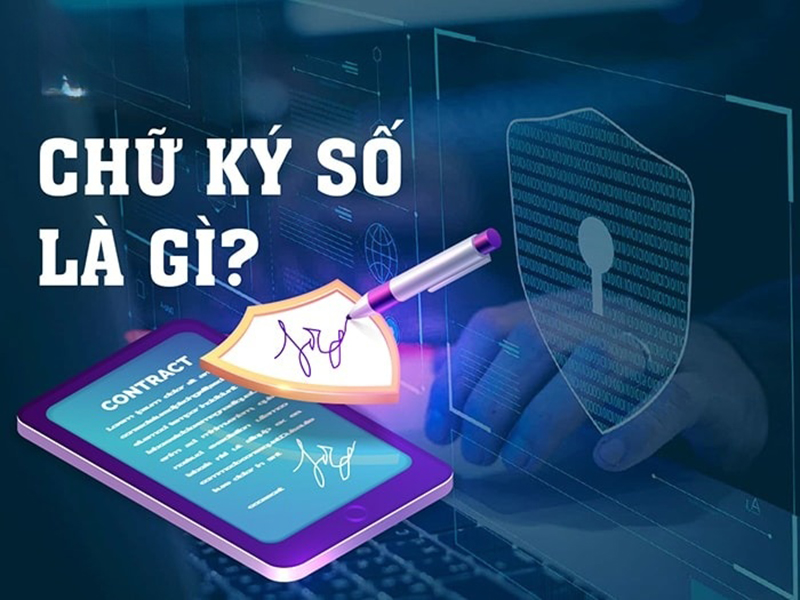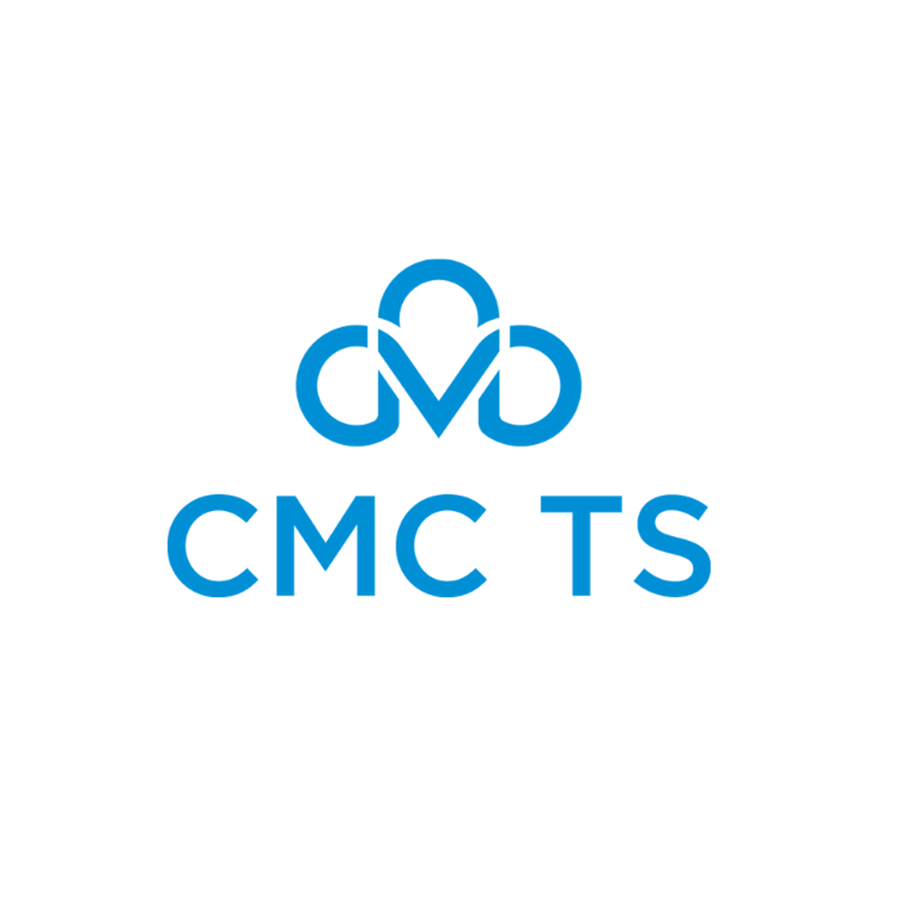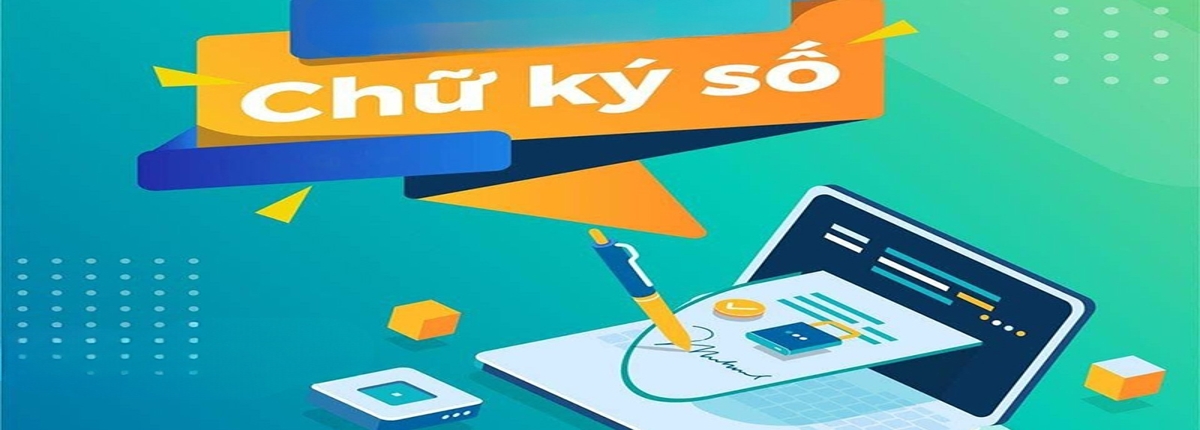Security solution and origin authentication with digital signature
I. Learn: "What is a digital signature?"
A digital signature is an electronic means used to authenticate the identity and reliability of an individual or organization when conducting electronic transactions. It is the equivalent of a regular paper signature, but is created and managed using cryptographic technologies and public key systems.

A digital signature is created by encrypting a message or a file using a private key of the sender. The encrypted message with this signature is then sent along with the sender's public key. The recipient will use the public key to decrypt the digital signature and verify the integrity of the message. If this signature is valid, this means that the message has not been altered in transit and that the sender has a valid identity.
II. Features of digital signatures
Features of this type of signature include:
2.1. Authenticity
Helps to clearly identify the sender of the message. Using the sender's private key, the digital signature can only be generated by that person, and the receiver can use the public key to authenticate the digital signature and confirm the identity of the sender.
2.2. Security
The digital signature is generated using strong encryption and a public key system, ensuring the confidentiality of the message. This signature cannot be decrypted or edited by those who do not have access to the private key.

2.3. Integrity
Digital signatures ensure message integrity. Any change in the message will corrupt the signature, and the change can be easily detected by the recipient. This ensures that the message is not changed during transmission.
2.4. Resistant to denial
When a sender uses a digital signature to sign a message, they cannot deny that they sent the message. This signature serves as an electronic proof that the sender has accepted and sent the message.
These characteristics are important benefits of digital signatures and ensure authenticity, security, integrity and non-repudiation in electronic transactions.
III. Applications of digital signatures in life
3.1. Authenticate the origin
Digital signatures help authenticate the origin of documents and messages. When a document or message is signed with this signature, the recipient can confirm that its origin is correct and has not been tampered with.
3.2 Information security
Digital signature ensures confidentiality of information. Once information is signed with this signature, it cannot be viewed, edited, or tampered with by anyone who does not have access to the private key.

3.3. Electronic transactions
Digital signatures are used in electronic transactions to authenticate and prove the consent of the parties involved. This signature helps ensure the integrity and authenticity of online transactions, such as online banking, online purchases, and electronic contracts.
3.4. Electronic document management
Digital signatures are used to authenticate and ensure the integrity of electronic documents. It helps manage and store electronic documents securely and cannot be altered or tampered with.
3.5. Digitizing processes
Digital signatures help digitize traditional processes and procedures. Instead of having to use signatures on physical documents, digital signatures allow processes and transactions to be performed more quickly and efficiently through electronic systems.
In summary, digital signatures have many applications in origin authentication, information security, electronic transactions, electronic document management, and digitization of processes. It plays an important role in enhancing security and trust in the digital environment.
IV. Objects using digital signatures
Digital signatures can be used by many different objects in life, including:
4.1. Single individual
Individuals can use digital signatures to authenticate and secure personal information and documents. For example, when sending important emails, digital signatures can be used to ensure the integrity of the content and confirm the origin of the email.
4.2. Enterprises, organizations
Businesses and organizations often use digital signatures to conduct electronic transactions, sign contracts, and confirm identities. Digital signatures help ensure the security and integrity of information during transactions and work with partners and customers.
In addition, digital signatures are also used by government organizations, regulators, banks and financial institutions to ensure security and authenticity in transactions and administrative processes.

In a nutshell, digital signatures can be used by single individuals to protect personal information and electronic communications, as well as by businesses, organizations and government agencies to conduct transactions and secure and authentic electronic process.
V. Summary of popular digital signatures today
Currently, there are many common types of digital signatures used in different systems and applications. Here is a summary of common signature types:
5.1. USB Token
This type of digital signature is stored on a USB device (USB token). Users need to connect the USB token to the computer to use the digital signature. USB tokens are usually password protected and provide high security for signatures.
5.2. Hardware Security Module
An HSM is a physical device used to store and manage digital signatures. It provides a physical security environment and protection against unauthorized access and attacks. Digital signatures are generated and processed inside the HSM, ensuring high security.
5.3. SmartCard
SmartCard is a smart card containing an electronic chip used to store digital signatures. This smart card can be used to authenticate and authenticate users in secure electronic transactions and processes.
5.4. Remote digital signature
This is a type of digital signature that users can use remotely over a network connection. Instead of storing the digital signature on a specific device, users can access the signature from anywhere with an Internet connection.

Depending on the requirements and usage environment, each type of digital signature has its own advantages and characteristics. The choice of the appropriate signature type will depend on the intended use, security level and utility of the user.
VI. Tham khảo ngay giải pháp chữ ký số CMCTS
CMC's CMC eSign (C-Sign) digital signing solution is a reliable solution for businesses to quickly and efficiently implement the online document signing and authentication process. Features of this solution include:
- Integrating various digital signature authentication tools: C-Sign integrates HSM Server, Remote Signing, USB Token and Smartcard to ensure accuracy and security in the process of signing and authenticating documents. CMC eVerify is used to check the validity of digital certificates, document integrity and timestamp validity.
- Support direct signing on multiple digital platforms: C-Sign allows direct signing on enterprise digital platforms such as E-Office, ERP, CRM, HRM and more. It is also compatible with the document approval process on digital platforms, helping to speed up processing and reduce waiting times.
- Support for flexible online signing on multiple devices: This solution enables online signing on mobile phones, tablets and PCs, providing flexibility and convenience for users.
- Cost and time savings: C-Sign saves printing costs, shipping and waiting time. The online digital signing process reduces the need for physical paperwork and is economically viable.
- Support for digital signing on many types of data: This solution supports digital signing on many types of data such as PDF, XML, Json, Text, Word, Excel and more, meeting the needs of other workflows each other in the business.

With the above characteristics, CMC's C-Sign solution brings many benefits and conveniences to businesses in implementing the online document signing and authentication process. If businesses want to apply CMC's C-Sign solution, customers can access it at website https://cmcts.com.vn/ or email: [email protected]







